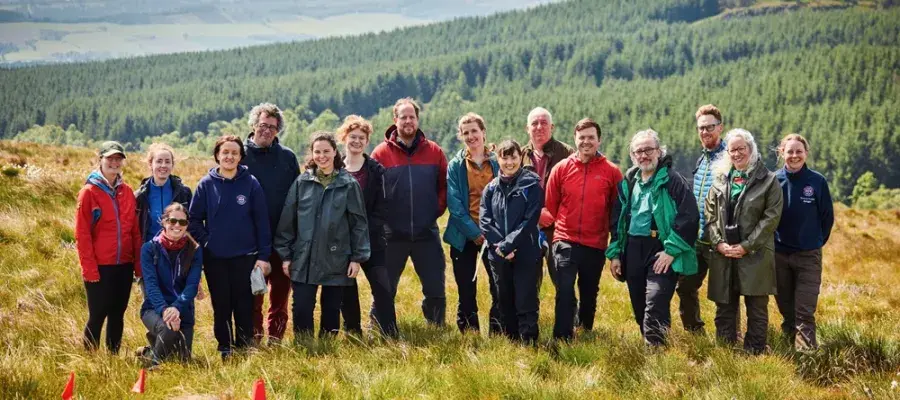
A Global Benchmarking Overview
The most recent edition of the QS World University Rankings – Sustainability 2026 has positioned the University of Edinburgh as the fourth best institution in the world for sustainability. This marks a significant achievement in a field that is rapidly evolving and increasingly critical to higher education institutions worldwide. Understanding how this ranking was achieved can provide valuable insights for prospective students, researchers and partners looking to engage with a leading sustainability hub.
QS Sustainability Ranking Methodology
QS evaluates universities across three core areas: environmental impact, social impact, and governance. Each of these broad categories is subdivided into a series of indicators that collectively generate a composite score. For example, environmental impact includes academic reputation, alumni influence and the breadth of climate science courses offered. Social impact measures community engagement, partnership effectiveness and value delivered to local populations. Governance covers organisational policy, transparency and external accountability. These indicators are weighted to reflect the broader importance assigned by QS to a well‑balanced, responsible institutional approach.
University of Edinburgh’s Positioning
Within the 2,000+ institutions considered, Edinburgh’s scores translated into a global placement of fourth, out of 1,648 universities that submit detailed data for the sustainability ranking. Importantly, among the 109 UK institutions evaluated, Edinburgh is the leading university in Scotland and ranks second nationally. The jumps observed from the previous year – notably advancing from 12th to 6th in social impact – underline a trajectory of dedicated action rather than coincidence.
Key Strengths Driving the Fourth Place Placement
Environmental Impact Excellence
- Academic Reputation – Edinburgh’s environmental science faculty consistently ranks in the top 5% of peer institutions worldwide, driven by high citation metrics and influential publications.
- Alumni Influence – Former graduates hold positions at national environmental agencies, NGOs and industry leaders, bolstering the university’s network.
- Curricular Breadth – More than twenty undergraduate and graduate tracks center on climate science, regenerative agriculture, and resource management.
Robust Social Impact Initiatives
From community‑based archaeology digs to mental health support initiatives, the university has consistently translated research into tangible local benefits. The Community Access to Rooms Scheme provides affordable spaces for civic organisations, while the University Grants Scheme has funneled over £1 million into 330+ projects since its 2017 launch.
Governance Practices Rewarded
Transparent reporting, a clear sustainability charter and dedicated governance bodies have earned Edinburgh high marks in QS’s governance scoring. The institution’s annual sustainability report follows rigorous third‑party auditing, demonstrating accountability to both stakeholders and the wider public.
Strategic Climate Commitments
Net Zero Target and Fossil Fuel Exit
Edinburgh has pledged to reach net‑zero greenhouse gas emissions by 2040. The commitment encompasses an immediate divestment from fossil fuel holdings and a transition to 100% renewable electricity across all campuses.
Renewable Investment & Peatland Restoration
Renewable projects include several solar farms and a high‑efficiency wind turbine array in the Highlands. In parallel, the university has renewed its World‑Environment Research Centre’s work on peatland restoration, recognising these ecosystems as crucial carbon sinks.
Future Sustainability Strategy
Looking ahead, the forthcoming 2026 strategy proposes a “regenerative” framework – moving beyond damage mitigation towards actively repairing ecosystems. Scopes include carbon farming, biodiversity corridors and circular economy pilots that enroll campus operations in the cycle.
Community Engagement and Social Value
Local Grants and Projects
Funds released through the Grants Scheme see community benefits such as the Dalkeith archaeological dig and a £300,000 charitable partnership that provides over 1,000 counselling sessions in West Lothian. These examples showcase how the university leverages its academic strengths to address pressing local issues.
Community Plan and Consultation
After 18 months of public consultation – with more than 600 interaction points – Edinburgh released a new Community Plan. The plan aims to sustain social impact momentum and aligns institutional goals with the needs of residents, businesses and the broader ethical ecosystem.
Opportunities for Students and Researchers
Research Programs: Forestry, Peatlands
Graduate candidates can join the University’s Forest and Peatlands Programme, working alongside scholars such as Prof. Caroline Nichol and Dr. Iain McNicol. Fellows conduct field work on moorland restoration and carbon sequestration studies.
Teaching and Learning Initiatives
Curricula emphasize hands‑on training, data‑driven decision making and policy‑evidence translation. Enrolments in courses like Sustainable Resource Management are on‑ramp, offering students direct links to industry consultancy roles.
Career Prospects and Industry Partnerships
Alumni directories and career services report that 76% of sustainability graduates secure roles within the public, private or non‑profit sectors within six months. Partnerships with firms such as ScottishWater and EU‑funded research consortia provide internships and real‑world project exposure.
Getting Involved and Taking Action
Whether you are a prospective student, a researcher, or a community partner, the University of Edinburgh presents multiple avenues for participation:
- Explore sustainability programs and discover how the curriculum aligns with global climate challenges.
- Schedule a campus visit to experience first‑hand our green building initiatives and renewable installations.
- Apply to undergraduate or postgraduate sustainability tracks and begin building an impact‑focused career.
- Follow our Sustainability Hub for updates on research breakthroughs, events and community projects.
Discover if a career in sustainability starts here. The University’s bold network, robust training, and strong community integration set the scene for meaningful change.

